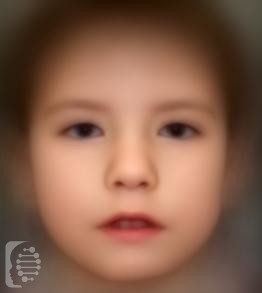What is Moebius syndrome (MBS)?
Moebius Syndrome is a rare neurological condition which presents with the lack of, or severe underdevelopment of the 6th and 7th cranial nerves.
As a congenital condition it is most commonly diagnosed at birth.
This underdevelopment in turn causes congenital facial palsy and abnormal ocular or eye movements. Affected individuals have less control over their facial expressions and eye movements.
Syndrome Synonyms:
Facial diplegia – congenital; Mobius Syndrome; MBS; Moebius Sequence; Moebius syndrome (congenital facial diplegia)
What gene change causes Moebius syndrome (MBS)?
There is currently no common genetic cause identified as responsible for causing the syndrome. It is currently believed to be caused by a mixture of genetic and environmental factors, but what these are exactly remains to be identified.
What are the main symptoms of Moebius syndrome (MBS)?
The syndrome affects the 6th and 7th cranial nerves which are responsible for eye movement and the controlling and making of facial expressions. This leads to syndromes such as crossed eyes, and further issues with speaking, earring, hearing, and the ability to form facial expressions.
Other health conditions associated with the syndrome include a cleft palate, hearing problems, club foot, missing or fused fingers, Poland’s syndrome which affects the chest and upper limbs, dental problems, and motor delay.
Possible clinical traits/features:
Autosomal dominant inheritance, Syndactyly, Pes planus, Open mouth, Ophthalmoparesis, Short neck, Poor coordination, Strabismus, Talipes, Talipes equinovarus, Radial deviation of finger, Reduced number of teeth, Camptodactyly, Respiratory difficulties, Sporadic, Phenotypic variability, Ptosis, Clinodactyly, Clumsiness, Clinodactyly of the 5th finger, Congenital fibrosis of extraocular muscles, Brachydactyly, Dysdiadochokinesis, Dysarthria, Dysphagia, Motor delay, Decreased testicular size, Exotropia, Feeding difficulties in infancy, Finger syndactyly, Facial diplegia, Arthrogryposis multiplex congenita, Split hand, Epicanthus, Everted lower lip vermilion, Esotropia, Opacification of the corneal stroma, Hearing impairment, Depressed nasal bridge, Gait disturbance, Hand clenching, High palate, Short phalanx of finger, Delayed speech and language development, Visual impairment, Hypertelorism, Hypoplasia of the brainstem, Hypogonadotropic hypogonadism, Lower limb undergrowth, Muscular hypotonia, Micropenis, Microphthalmia.
How is it diagnosed?
To find out if someone has a diagnosis of Moebius syndrome (MBS), it is important to have a consultation and evaluation with a clinical genetic specialist. Specialists may also suggest specific genetic testing or other types of tests to help reach a diagnosis. FDNA’s AI technology can help speed up the diagnostic process by analyzing facial features and other health information.

